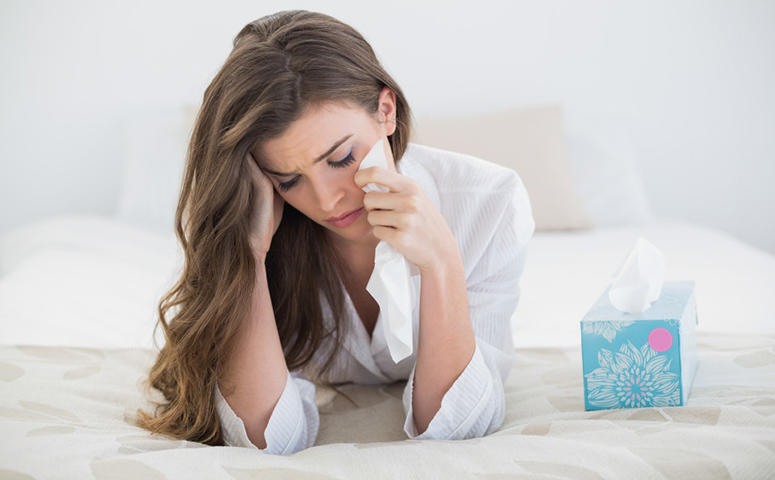Contracting a yeast infection can be anything but fun, and this annoying plague of an infection usually strikes hardest at the onset of your menstrual cycle. This is largely because at around this time the vagina becomes more acidic and so it becomes the prime breeding ground for a yeast infection. Some of the symptoms of a yeast infection are as follows:
A) Itching: This is a common complaint because it is generally associated with a yeast infection and it usually occurs a few weeks before menstruation.
B) Vaginal Soreness: The constant itching may lead to vaginal soreness which may make it difficult for you to urinate or engage in any kind of sexual activity.
C) Cheesy Discharge: This is usually the symptom that leads to an accurate diagnosis of a yeast infection because a cheesy looking discharge and a discharge with a foul odor are one of the most obvious telltale signs.
How Can You Prevent Recurrent Yeast Infections?
In order to lower your yeast infection risk, or to quickly rid you of one, you should get rid of the things that contribute to it. These include bath soaps, laundry detergents, contraceptives that you have to insert, scented or colored toilet paper, substances used in pools and clothing that contain dye.
Treating Yeast Infections
Unfortunately, though, there are certain medical issues such as diabetes and HIV that will increase your chances of getting a yeast infection. There is also a correlation between antibiotic usage and an increase in yeast infections. It is, therefore, imperative that doctors and medical practitioners inform their patients about the likelihood of developing a yeast infection after taking antibiotics, and what they can do to prevent one. Taking supplements can also help. Some are geared to targeting yeast infections directly or reducing inflammation in the body that can also help. Always consult with a healthcare professional before starting any supplement.
If you are having repeated bouts of yeast infections then you should get tested in order to determine whether or not this is caused by candidal infections. It is important that you get a culture done to rule out other, harder to treat infections, but if they are recurrent it usually means that you are repeatedly contracting it instead of not responding positively to treatment. When this occurs, you will need to have your partner tested or you may need to pay closer attention to matters of hygiene.
While yeast infections can be quite an unpleasant hassle, the good news is that it is treatable and ketoconazole tablets are usually recommended for the treatment of repeated bouts of yeast infections or for those who do not respond well to other types of treatment. However, the intake of ketoconazole and fluconazole has been known to result in liver toxicity and individuals who have encountered, or are encountering, liver problems should consult with their physician before using this medication. It is important that you seek medical advice before starting any regime, and even though fluconazole is milder on the liver do not take it without taking the necessary precautions.
In addition, boric acid capsules that come in the form of vaginal inserts are effective in treating recurrent yeast infections. If you opt for this mode of treatment, you may not need to treat your partner unless he shows signs of a yeast infection and is not circumcised.












